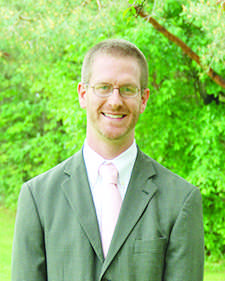There are two kinds of people in two different worlds facing two different problems. On the one hand are students looking to make a social impact but can’t find the right kind of work. On the other hand are organizations trying to make change but can’t find the right talent. The Data Science for Social Good fellowship was established to bridge that gap.
According to Rayid Ghani, research director at the Argonne National Laboratory and University of Chicago’s Computation Institute, students with certain skills often apply their skills to corporate work that lacks the social impact that could motivate and excite them.
“They have the skills to [make a social impact],” Ghani said. “They just don’t know about the problems.”
Joseph Walsh, doctoral student in political science at The University of Alabama, was a fellow in the Data Science for Social Good program last year. This year, he was invited back as a mentor. As a fellow, he worked on a project as part of a four-member team.
For the twelve-week program, of which they are currently in the fourth, he will oversee two teams working on two projects. One project is with the Chicago Public School system, which he said has struggled to accurately allocate its budget every year because of the difficulty in predicting enrollment.
“Last year, there were two schools where they were off by more than a million dollars,” he said.
For more than a dozen schools, the margin was over $500,000, an error that results in the firing of teachers.
“And it’s all at the last second,” he said. “We’re trying to come up with a betterprediction system for them.”
The other project Walsh is overseeing deals with the identification of earmarks, which are currently found by advocacy groups reading bills. Advances in identification would be useful not only to political scientists who research earmarks, he said, but also to advocacy groups.
“It’s just a lot of work. It’s very costly,” Walsh said. “We’re trying to figure out this summer if we can identify earmarks in legislation using computers. We put in the text and the computer spits out a list of all of the earmarks in there.”
As a mentor, Walsh oversees and helps the teams. Tracy Schifeling, a graduate student in statistics at Duke University, is on the team working with Chicago public schools. She said the work at DSSG lines up with her future career goals.
“You get to apply the kind of methods you learn about in school, but it’s real data and you can learn interesting things about it from the real world,” she said. “It’s kind of a mix of all these different fields applied to real problems to get practical solutions.”
Schifeling also said the environment at DSSG is collaborative, supportive and fun.
“Everyone is really open. They have learning lunches,” she said. “Lots of people come in with a strong background in one field, but there’s a lot to learn.”
Ghani said the perfect person for socially impactful data science projects needs skills in computation, statistics, social sciences and communication. Non-profit groups don’t know how to use typical graduate students, he said. The structure of the program is hybrid, he said, in that it combines a project focus with inter-project activities.
“The idea was to create, basically, people who are experts in a few of these things but at least have exposure to the rest,” he said.
Walsh said data science mostly combines statistics and computer programming.
“Data science is not a clearly defined term at this point. It’s kind of a sexy term, I guess,” he said. “A lot of statisticians, they’re very good with statistics, but they don’t have a lot of programming background. And then a lot of programmers don’t have a lot of statistics background. Usually, data science people bring those things together.”
Walsh’s return as a mentor, Ghani said, is an exception for now, but as DSSG matures, he hopes to see more returning fellows. Walsh’s experience in the industry made him a good candidate. Schifeling said Walsh has been very helpful in planning the project.
“It parallels very close to what I’m hoping to do, which is data analysis, which I find fascinating,” Walsh said. “I just like the idea that I’m able to use numbers to effect positive change.”
Walsh said he wouldn’t be at DSSG if not for his time as a doctoral student at the University. He said he hopes more UA students will join in the future, and he is excited about returning to DSSG in a more senior role.









